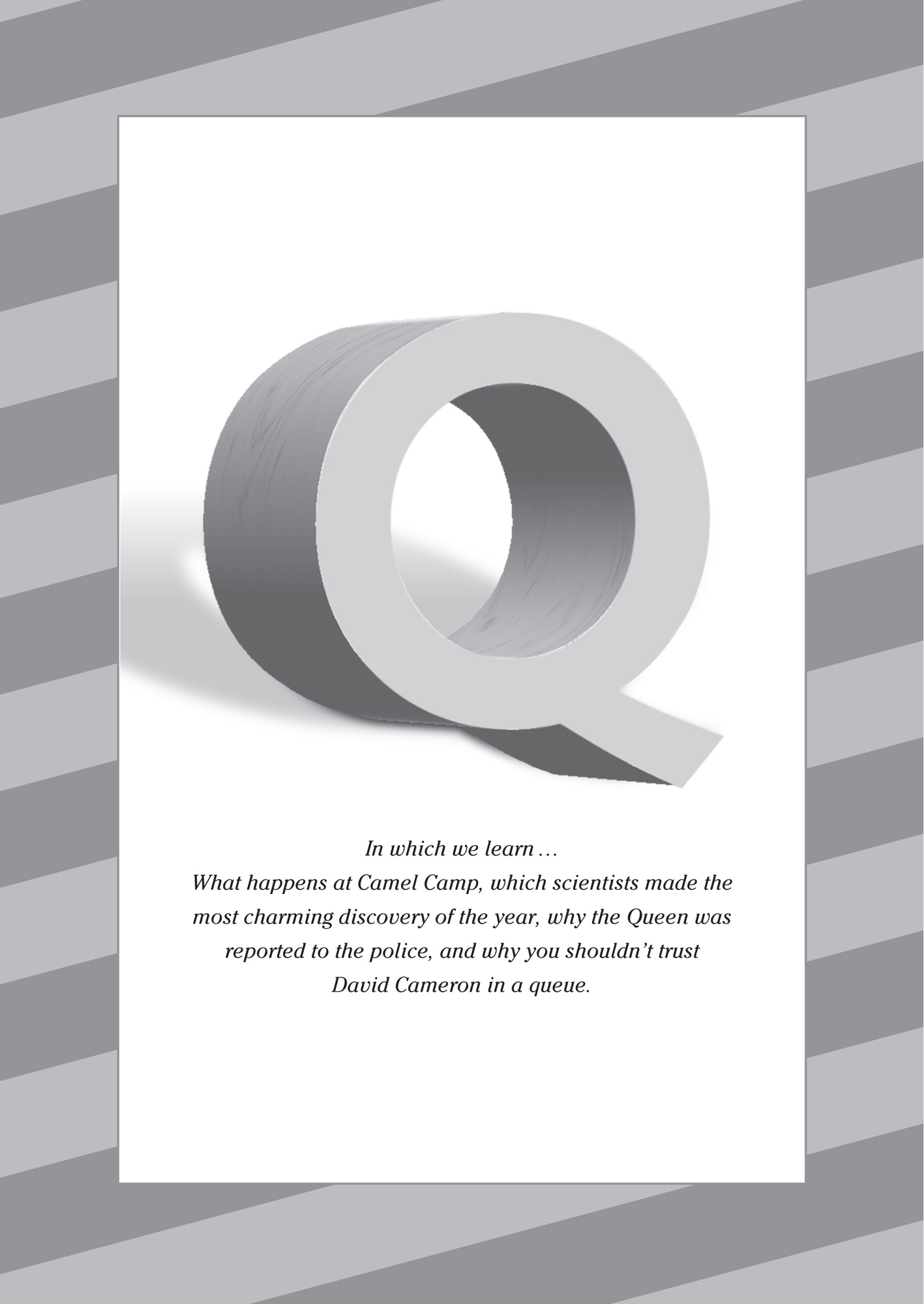

QATAR▶
Qatar started a refugee camp for camels.
In June this year a number of countries in the Middle East suddenly cut off all diplomatic relations with Qatar, claiming it was sponsoring terrorism. What triggered the incident is not certain. One theory is that it was related to Qatar paying $1 billion to secure the release of members of its royal family who had been kidnapped by Iranian-backed militias in Iraq. They were said to have paid the billion dollars in cash, carried in suitcases.
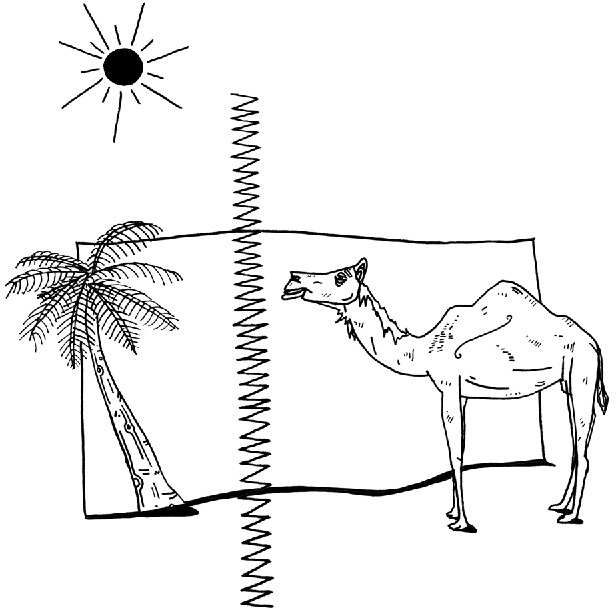
Whatever the reason, the diplomatic row threatened to be a huge inconvenience for Qatar, whose only land border is with Saudi Arabia. Qatari residents of Saudi Arabia, the United Arab Emirates and Bahrain were given two weeks’ notice to leave and return to Qatar. At the same time, the Saudis stopped any goods from crossing between the two countries – which meant Qatar had to find a new way to import 40 per cent of its food (see Food and Drink). The Saudis also introduced a fine of 10,000 riyal (£2,000) for anyone watching the Qatari-based news network Al Jazeera, and anyone expressing sympathy for Qatar could be punished by three to 15 years in jail and a fine of no less than £100,000. Qatari-registered animals were deported from Saudi Arabia, and a refugee camp for at least 7,000 camels and 5,000 sheep had to be set up while officials worked out what to do with them.
Qatar is an extremely rich country, though, and even these severe sanctions didn’t exactly have the desired effects, at least to begin with. One banker said he wasn’t worried: ‘Instead of having five maids at home, we’ll have three.’
QAZAQSTAN▶
Kazakhstan can’t agree how to spell Kazakhstan.
The problem is that the government wants to change from the Cyrillic alphabet, where the country is spelled KaзaKCTaH, to the Latin alphabet, but nobody can agree which letters to use. The English spelling, ‘Kazakhstan’, doesn’t quite work, as the two ‘K’s are actually meant to be pronounced at the back of the throat, and there’s no exact letter for that sound in the Latin alphabet.
Three possible options have been suggested for the disputed letters: a Q, a K with a squiggle below it, or a K with an inverted hat. Most Kazakhs favour the Q, which would make Qazaqstan one of only two countries to start with that letter (the other, of course, being Qatar). Whatever is finally agreed, some Kazakhs find the whole affair deeply embarrassing. Rasul Jumaly, a former foreign ministry official, said, ‘It doesn’t look very good when a country can’t decide how to spell its name.’
Another country considering a name change is Macedonia, which is thinking of doing so just to keep Greece happy. Macedonia has been trying to join NATO for over a decade, but its application has always been blocked by Greece, which objects to its neighbour’s name, arguing that the area historically known as ‘Macedonia’ was, in fact, largely in Greece. This year, with fears growing over increased Russian influence in the area, Macedonia announced that it might be willing to join NATO under a new name. Suggestions include New Macedonia, Upper Macedonia, Slavo-Macedonia, Nova Makedonija and Macedonia (Skopje). Unfortunately all these names fall foul of the one condition Greece has insisted upon: that the name Macedonia shouldn’t be used.
Because both countries claim the name, the sign that greets you on both sides of the Greece–Macedonia border reads ‘Welcome to Macedonia’.
QUARKS▶
Physicists found the world’s most charming particle.
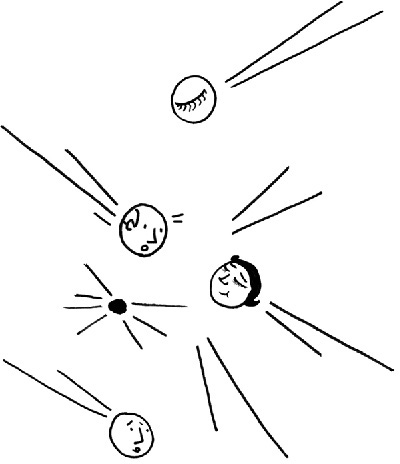
You need to know only two things to understand the latest findings in subatomic physics:
1. Most particles in the universe are made of smaller things called quarks, which come in six ‘flavours’: up, down, top, bottom, charm and strange.*
2. Physicists are trying to find new particles by bashing existing particles together at great speed.
In a recent experiment, scientists fired lead atoms at each other, producing a ‘soup’ of quarks (as expected); but they also found that that soup had more ‘strange’ quarks than they had predicted. CERN called it ‘enhanced strangeness production’, and got excited, as physicists tend to do when something happens that they’re not expecting.
In another experiment, a new particle called Xi-cc++ which had been predicted to exist, but had never before been seen, was found in a collision. It contains one up quark and two charm quarks, making it the most charming particle ever seen. It lasted only for somewhere between 50 millionths of a billionth of a second and 1,000 millionths of a billionth of a second. But for that fraction of a second, it was extremely charming.
QUEEN ELIZABETH, HMS▶
The Royal Navy’s largest ever aircraft carrier was launched, without any aircraft to carry.
The HMS Queen Elizabeth, which set off on its maiden voyage this year for six weeks of sea trials, did so without a single aeroplane on board, because the navy doesn’t yet have any. Instead the flight-deck crew were left back on land at the Royal Naval Air Service base at Culdrose, where they practised pushing life-size models of F-35 planes around on the tarmac. Even at the ship’s naming ceremony in 2014, the MoD was unable to get its hands on a real plane, and had to use a fake, life-size model instead.
A lack of actual planes isn’t the only setback from which the ship has suffered. It also has faulty doors, and the hull had to be repainted a few months before launch because it turned out that the original paint peels off in seawater.
The aircraft carrier, affectionately known as Big Lizzie, was named after the Queen in 2002 in order to safeguard the project: naval officers reckoned Tony Blair’s government would find it embarrassing to scrap a ship bearing Her Majesty’s name. It’s capable of carrying 40 aircraft (when it gets them), a crew of 1,000, and comes with a hospital (complete with an operating theatre and dentist’s surgery), police cells and even its own specially composed theme tune.
The HMS Queen Elizabeth is said to be the most advanced warship of all time. It’s longer than the Houses of Parliament, taller than Nelson’s Column, cost over £3 billion to construct, and is the largest ship ever built by the British Royal Navy. Its size and power are meant to strike fear in the hearts of Britain’s enemies, although, if so, rival powers aren’t letting on: the Russian military simply called it a ‘large convenient target’.
It wasn’t the only British navy ship to experience problems this year. In February it was revealed that the Royal Navy’s new Type 45 destroyers are so noisy that enemy submarines can hear them from 100 miles away. Rear Admiral Chris Parry said crews had ‘put little wooden wedges between the hatchclips and the hatches in my destroyer to stop them rattling so we could keep the noise down’.*
The Russian navy had its share of problems, too. The Admiral Kuznetsov aircraft carrier, which travelled through the English Channel in January, could be seen from 40 miles away, thanks to the black smoke which billowed out of it as it sailed. Half of its toilets don’t work, and it needs to be towed by a tug wherever it goes.
For more sailors receiving dubious tugs, see Fat Leonard.
QUEEN ELIZABETH II▶
For anti-forgery codes on her face, see Coins; for not wearing a seat belt, see Queen’s Speech; and for being beaten with a large vegetable, see Vanuatu.
QUEEN’S SPEECH▶
The Queen’s Speech was delayed by two days while everyone waited for the ink to dry.
The Queen’s Speech – the official ceremony in which the Sovereign reads out the laws Parliament hopes to pass – was delayed this year. Some people said it was because the Conservatives were taking a long time to reach a power-sharing agreement with the DUP. According to government sources, though, the delay was also due to the fact that it would take several days for the speech to dry on the special goatskin parchment paper used for it.
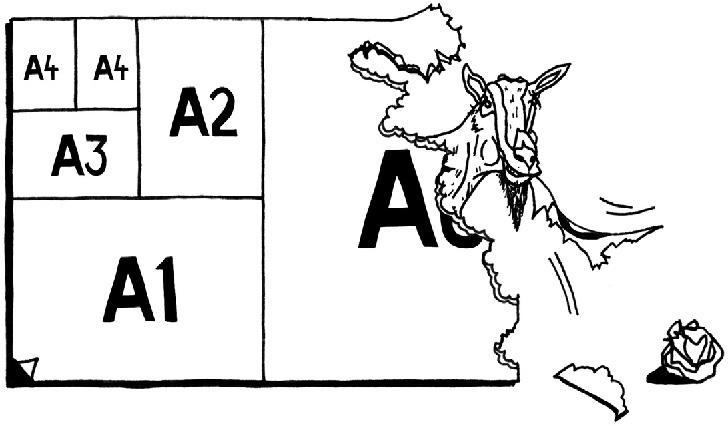
According to an expert, this wasn’t the goatskin’s fault. Paul Wright of William Cowley Parchment Works said that the problem lay with the ink being used, and that if the government had known what they were doing they could have had it dry and ready in ten minutes flat.
The Queen can’t have been best pleased by the two-day delay, as it meant she missed the second morning of her beloved Royal Ascot. Fortunately, a helicopter was on standby to whisk her away to the afternoon’s horse racing.
Curiously, the ‘goatskin parchment paper’ the Queen’s Speech gets written on doesn’t actually contain any goat. It used to and it even has a watermark in the shape of a goat, but these days it’s just made of high-quality paper. Unlike the Queen’s Speech, the actual laws passed by Parliament were printed on genuine vellum (i.e. real animal skin) until this year, but from now on will be printed on paper. MPs voted to keep vellum (which lasts centuries longer), but bowed to cost-cutting pressure from the House of Lords. Tory MP Ian Liddell-Grainger said this was a short-sighted move, and that ‘in a thousand years’ time people will ask, “What did they do in March 2017?”’
QUEENSLAND▶
Queensland police successfully lowered crime rates by asking victims to stop reporting crimes.
The shocking discovery was made by the Queensland Audit Office, which discovered that 22 per cent of all the Police Service’s reports from 2011 to 2016 were incomplete, inaccurate, or both.
Queensland police were ‘fudging’ their reports in response to mounting pressure from the government to get crime rates down. They adopted various tactics: crime data was not logged properly; ‘unsolved’ cases were recorded as ‘unfounded’; others were labelled ‘Solved – bar to prosecution’; and officers asked victims to withdraw accusations. They even sent out letters stating that if victims did not respond within seven days it would be assumed that they didn’t want to take any further action. Measures are now being put into place to address these issues.
Australia also discovered this year that its most criminal name is Leon. Law firm Go To Court looked at over 25,000 crimes drawn from a database of publicly accessible records and cross-referenced them against a list of Australia’s most popular names over the past 90 years. The final list consists of 500 names, with Leon coming out on top. Others include Andrew (186), Hunter (466) and Murray (76).
QUEUEING▶
British people queue according to unwritten rules (which are written below).
A study by University College London found that Brits queue for an average of six minutes (or five minutes and 54 seconds, to be precise) before giving up; that they are reluctant to join a queue if it has more than six people already in it; and that 6 inches is the minimum amount of space they’re comfortable having between them and the other queuers.
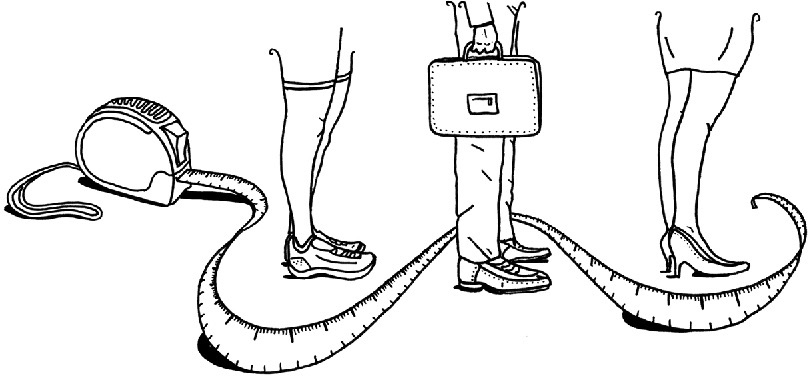
UCL summarised all this as ‘the rule of six’ while acknowledging that there’s great variety according to the type of queue involved. People will wait longer for concert tickets, for instance, than they’ll wait in a toilet queue. One caveat is that people become much less likely to leave a queue if others line up behind them. The chances of someone exiting a queue fall to almost zero when the number of people behind them builds to – you guessed it – six.
Not everyone plays by the rules. David Cameron was caught on camera breaching queue etiquette in JD Sports. After getting to the cashier and realising he’d picked the wrong-sized socks, he rushed off to fetch the right size and returned to the till, fast-tracking past about 10 other shoppers who were waiting in line. The government’s integration tsar, Louise Casey, might have some tips for him. Speaking about how people could help migrants fit into British society, she commented that they should all be taught the holy trinity of British skills: ‘be nice’, know when to put the bins out, and queue properly.